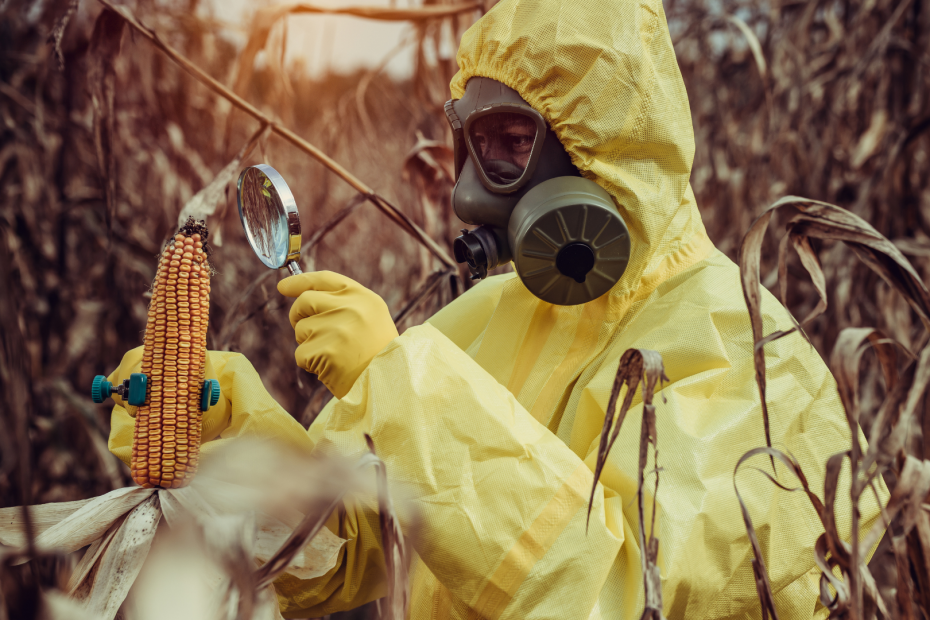Today’s consumers are becoming more and more educated about what’s in the food they eat. And for good reason. Food labeling is confusing. There are so many different labels such as “natural,” “organic,” “non-GMO” (Genetically Modified Organism).
These terms all mean different things to different people, but it can be hard for the average person to figure out which one is best for them, leading to a lot of confusion about which foods are better than others. So, what’s the difference between non-GMO, Organic, and regular non-organic foods? Which one is the healthiest? Which one is worth spending more money on when buying herbal supplements?
What’s the difference between non-GMO and Organic?
While the terms “non-GMO” and “Organic” may seem like they mean the same thing, they actually have very different meanings behind them. Organic is a certification given to farms that meet certain standards of growing vegetables and other crops. Organic vegetables are grown without pesticides, synthetic fertilisers, antibiotics, or genetically modified organisms. Organic crops are not allowed to be genetically modified, which is different from non-GMO. Non-GMO crops are not allowed to have been genetically modified in any way.
GMOs are a type of crop in which a farmer or scientist will use genetic engineering to create a plant that is more resistant to a certain insect or disease. For example, if carrots have been genetically modified, then scientists will have removed certain genes from the carrot, meaning that certain traits have been removed from the plant. GMOs are not allowed in organic growing, so if a crop is labeled organic, it’s almost 100% guaranteed that it’s free of GMOs.
How are GMOs bad?
GMOs have been linked to many health issues such as allergic reactions, infertility, and even early death. Unfortunately, there is no conclusive evidence that GMOs are harmful to human health (so they say) though there are plenty of studies that indicate GMOs are linked to health issues and are not safe to consume. However, GMOs ARE bad for the environment.
Due to the fact that most GMOs are engineered to be resistant to herbicides, there is a high chance that non-GMO crops will also be exposed to these harmful chemicals. The health of our planet is also at risk since GMOs can contaminate non-GMO crops, causing farmers to have to destroy their entire crops due to the contamination. For a detailed rundown of GMOs with some excellent info see here.
Is there a benefit to choosing organic over non-GMO?
Yes! Organic foods must be grown without pesticides, synthetic fertilizers, and GMOs, whereas non-GMO foods are free of GMOs but do not have to be grown without pesticides. So, by choosing organic over non-GMO, you are getting a much cleaner product free of any harmful chemicals.
Additionally, non-GMO crops are only required to be 95% free of GMO, whereas organic crops must be 100% free of GMOs. Just 5% of crops grown organically have been found to have traces of GMOs, whereas up to 40% of non-GMO crops have been found to be contaminated with GMOs.
Why is there so much confusion over Non-GMO vs Organic?
The simple fact of the matter is that organic produce and non-GMO produce are both better than regular non-organic produce. Unfortunately, the organic label has been watered down over the years, and there is a ton of confusion among consumers.
Previously, the government required organic foods to be 100% organic, but now they allow produce that is 95% organic to be labeled as organic. This has caused a lot of confusion among consumers, and it’s also caused the organic industry to become less regulated.
Summary
Organic and non-GMO foods are both better alternatives than non-organic produce. Unfortunately, the organic label is becoming less strict due to the fact that it’s hard for farmers to keep up with organic growing practices. This has caused consumers to be very confused about which food is best for them.
Organic produce is grown without pesticides and GMOs, whereas non-GMO foods don’t have any genetically modified ingredients. For a better choice, choose non-GMO foods that are also organic.
By making this choice, you can be sure that you are getting a clean, healthy product. Take our quiz to see which of our supplements are right for you and for more information regarding GMOs, see the myths and truths report here.

Pretty! This has been a really wonderful post.
Thanks for supplying this info.